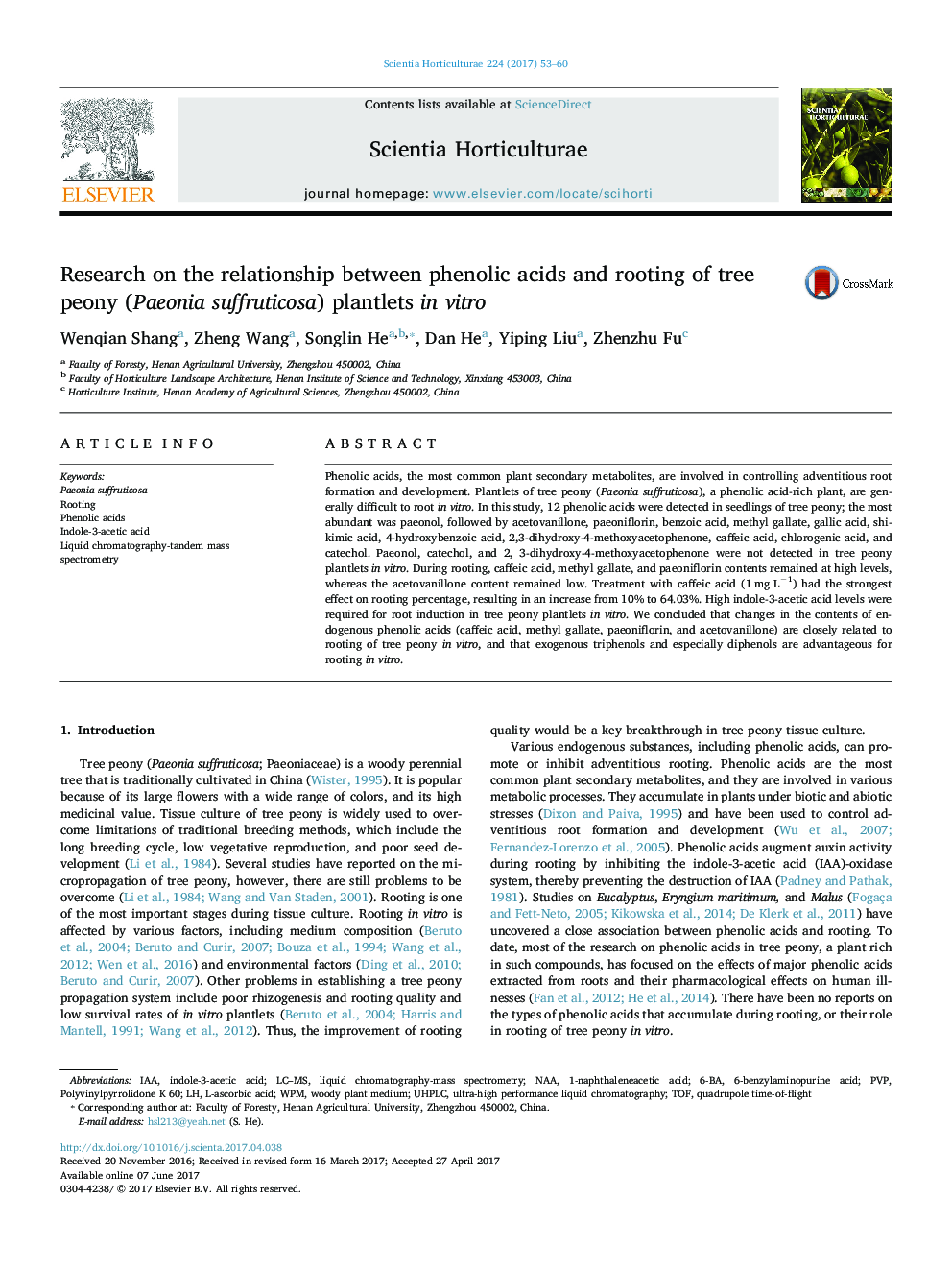| کد مقاله | کد نشریه | سال انتشار | مقاله انگلیسی | نسخه تمام متن |
|---|---|---|---|---|
| 5769396 | 1628774 | 2017 | 8 صفحه PDF | دانلود رایگان |

- Diphenols were extremely scarce in tree peony.
- The exogenous diphenols and triphenols are advantageous to rooting, especially diphenols.
- The changes in the contents of endogenous phenolic acids (caffeic acid, methyl gallate, paeoniflorin, and acetovanillone) are closely related to rooting of tree peony in vitro.
Phenolic acids, the most common plant secondary metabolites, are involved in controlling adventitious root formation and development. Plantlets of tree peony (Paeonia suffruticosa), a phenolic acid-rich plant, are generally difficult to root in vitro. In this study, 12 phenolic acids were detected in seedlings of tree peony; the most abundant was paeonol, followed by acetovanillone, paeoniflorin, benzoic acid, methyl gallate, gallic acid, shikimic acid, 4-hydroxybenzoic acid, 2,3-dihydroxy-4-methoxyacetophenone, caffeic acid, chlorogenic acid, and catechol. Paeonol, catechol, and 2, 3-dihydroxy-4-methoxyacetophenone were not detected in tree peony plantlets in vitro. During rooting, caffeic acid, methyl gallate, and paeoniflorin contents remained at high levels, whereas the acetovanillone content remained low. Treatment with caffeic acid (1 mg Lâ1) had the strongest effect on rooting percentage, resulting in an increase from 10% to 64.03%. High indole-3-acetic acid levels were required for root induction in tree peony plantlets in vitro. We concluded that changes in the contents of endogenous phenolic acids (caffeic acid, methyl gallate, paeoniflorin, and acetovanillone) are closely related to rooting of tree peony in vitro, and that exogenous triphenols and especially diphenols are advantageous for rooting in vitro.
Journal: Scientia Horticulturae - Volume 224, 20 October 2017, Pages 53-60